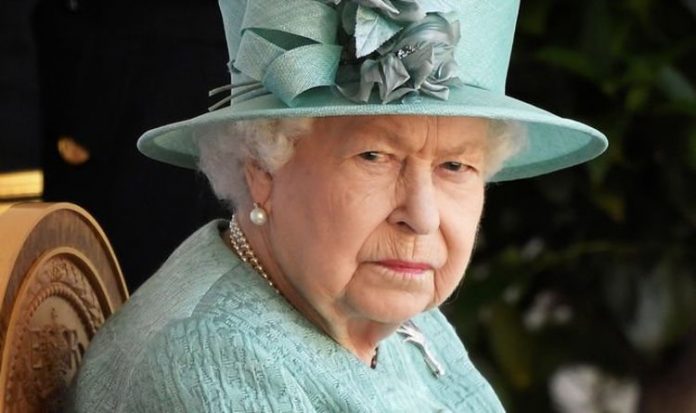Buckingham Palace said Barbados’ intention to remove the Queen as head of state and become a republic is a “matter” for the Caribbean nation. Asked to comment on the Commonwealth country’s plans a palace spokesman said: “This is a matter for the government and people of Barbados.”
Barbadians’ intention to sever their ties with the Crown were laid bare yesterday by the country’s Governor-General Dame Sandra Mason.
With a statement, the Governor-General announced the Caribbean island wants to ditch the Queen as head of state by next year.
Reading a speech written by Barbados Prime Minister Mia Mottley, Dame Sandra said: “The time has come to fully leave our colonial past behind.
“Barbadians want a Barbadian Head of State.
“This is the ultimate statement of confidence in who we are and what we are capable of achieving.
“Hence, Barbados will take the next logical step toward full sovereignty and become a republic by the time we celebrate our 55th anniversary of Independence.”
This speech appeared to have been inspired by the country’s first Prime Minister Errol Barrow‘s warning against “loitering on colonial premises”.
READ MORE: Prince Charles caught in ‘impossible’ situation as future monarch
The Governor-General is appointed by the monarch and represents the Queen in the country.
Many political leaders in Barbados have been exploring the path to republicanism over the past decades.
In 1998, a Barbados Constitutional review commission recommended the country to become a republic.
DON’T MISS
In 2005, the Government announced its intention to hold a referendum which would have asked its citizens whether they wanted to break free from the Crown.
Planned to be held by 2008, the Barbadian Government announced the vote would be pushed back to a later date in 2007 and was never carried out.
A decade later, Prime Minister Freundel Stuart said it was necessary for the country to sever its ties to the Crown.
He said in 2015: “We cannot pat ourselves on the shoulder at having gone into independence; having de-colonised our politics; we cannot pat ourselves on the shoulders at having decolonized our jurisprudence by delinking from the Judicial Committee of the Privy Council and explain to anybody why we continue to have a monarchical system.
“Therefore, the Right Excellent Errol Barrow decolonized the politics; Owen Arthur decolonized the jurisprudence and Freundel Stuart is going to complete the process.”
Barbados was claimed as an English territory overseas in 1625, when Captain Henry Powell landed on the Caribbean island.
Within the centuries, English governors introduced on the island African slaves to work the sugar plantations fields.
Barbados became independent in 1966 but retained the Queen as its head of state.
Links to Britain are still apparent when it comes to names of towns, such as Hastings, or streets, such as Liverpool Lane.







